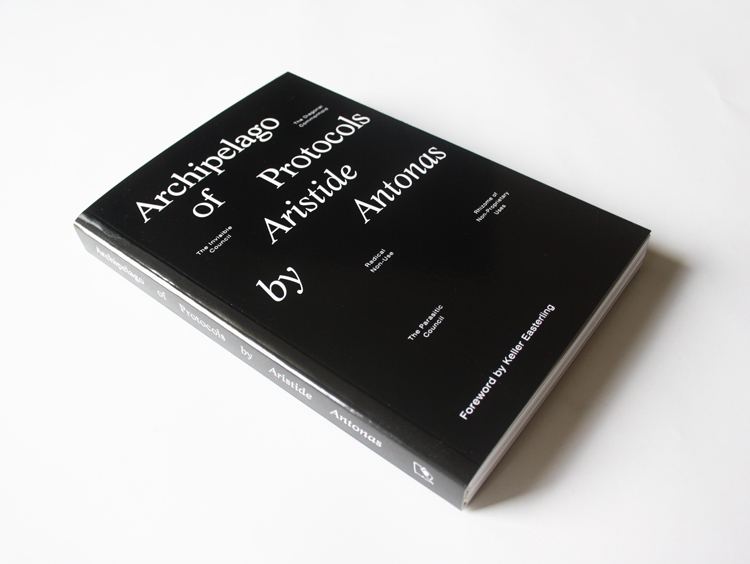«[…] the protocols that are the subject of the book are not fixed, finite things, but instructions for how to make evolve things. Protocols–whether used to describe diplomacy, software, manners or space–establish sequences, routines, or relations between parts, that unfold over time. Protocols lend a disposition or behaviour to an arrangement» (pp.7-8)
«Using the analogy of software, the protocols offer architectural structures as well as bits of code that align with and continue to shape the urban operating system […] perhaps also analogous to theatrical scripts» (p.8)
– Keller Easterling’s Foreword
«The Urban Protocols are meant to introduce legal temporary occupancies of the abandoned city center that will be accepted and controlled by a municipal authority; the purpose of an Urban Protocol would be to establish cluster-like micro-legislative constructions with communal functions. Urban Protocols are formed as systems of rules […] The system of rules they represent could be transformed and re-established easily.
The Urban Protocol challenges the relation between the city and the Internet; the concept of user would function better for its performance than the one of citizen. Nevertheless its most sophisticated part would have to deal with the relation between user and citizen. Its most challenging legislative part is ruled by the relationship between the Internet and the state; the Internet is understood as the quick functional basis for the formation, installation and function of an Urban Protocol.
[…] A city was conceived as a system of coexistence and its legislative system is already old. The Urban Protocol could be first and foremost the call for a new legislative phase for the city of the future»
– From the back cover
Antonas, A. (2016). Archipelago of Protocols. Barcelona: dpr-barcelona.
